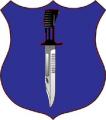Distinguishing Insurgency as a Subset of Civil War
The characteristics of civil wars and insurgencies overlap, but insurgency is a unique subset of conflict encompassing a wide range of political, military, social, and economic factors that distinguish it from civil wars and terrorism. The term “insurgency” is defined by the United States Military as an organized movement aimed at the overthrow of a constituted government through use of subversion and armed conflict. This definition is perhaps overly simplistic given the diverse objectives of insurgent groups, which may include secession, independence, or regime change. The recently published US Government definition is much more comprehensive. It states, “Insurgency is a protracted political-military campaign conducted by an organized movement seeking to subvert or displace the government and completely or partially control the resources and/or population of a country through the use of force and alternative political organizations.” Therefore, insurgency is political in nature, waged against a constituted government with an objective of regime change or secession. Insurgences often occur against the influence of a foreign occupying power or for regional/local autonomy.
From a military perspective, insurgency is distinctly guerilla in character, involving small bands of partisans operating within the population against the existing regime. It places a high value on political mobilization, drawing its fighters, supplies, intelligence, and refuge from the population of the involved state. Many insurgencies receive support from outside sources, whether nation-states or non-state organizations. Owing to conventional military weakness and lack of heavy equipment, insurgencies seek to attack a regime’s weakness and avoid open conflict with organized military forces. Victory is often achieved through “wearing the enemy down” rather than through military conquest, or through coup-like action. Particularly popular insurgencies manage to field organized military forces in the later stages, escalating the conflict to full civil war.
Insurgency is distinct from civil war in several ways. US Army Field Manual 100-20 provides the definition of civil war accepted by the United States military. Five criteria exist for a conflict meet the standard of civil war – control of territory, functioning government, foreign recognition, regular armed forces, and capability to engage in major military operations. The standard academic definition focuses less on land control than on battle deaths, with a standard definition of 1000 battle deaths between the warring parties. Both definitions emphasize conflict internal to a state conducted largely with organized military forces. Insurgents normally organize in irregular groups without clear chains of command, a key criteria for status as a civil war. Insurgents usually do not completely control the terrain they operate in, and thus operate in a fluid against the established government. Therefore, insurgencies are distinct from civil wars, and require a different approach from the regime. Most insurgencies share significant commonalities with civil war, and therefore distinguishing between civil war and insurgency is an imperfect science.
Defining terrorism versus insurgencies is also important because many insurgencies are confused with terrorist groups, and vice versa. Terrorism as a descriptive term should be separated from the groups employing the tactic as it confuses the nature of the dispute. The term “terrorist group” is applied broadly to characterize organizations involved in civil wars, insurgencies, and standard political violence between factions not rising to the level of insurgency or civil war. Terrorism author and expert Bruce Hoffman defines terrorism as, “… the deliberate creation and exploitation of fear through violence or the threat of violence the pursuit of political change.” Thus terrorism is primarily a tactic employed for political ends, and can be used in almost any dispute context.
In the post-9/11 era, this generates the unintended consequence of branding many insurgenies and civil war parties as terrorists, which may prejudice the willingness of regimes to seek political settlements in intrastate wars. No regime or regime ally wishes to be perceived as “soft on terror”. Given that terrorism is political in nature, the “war on terror” may actually increase its duration by raising domestic and foreign costs to settlement of the political grievance. Terrorist groups in many cases may be insurgencies, or simply political organizations seeking recognition of their cause. Regardless of the objective, it is clear that while not all terrorist groups are insurgencies, most insurgencies use terrorism as a tactic against either the population or the government to achieve their political goals.







 "A Sherman can give you a very nice... edge."- Oddball,
"A Sherman can give you a very nice... edge."- Oddball, 





Bookmarks